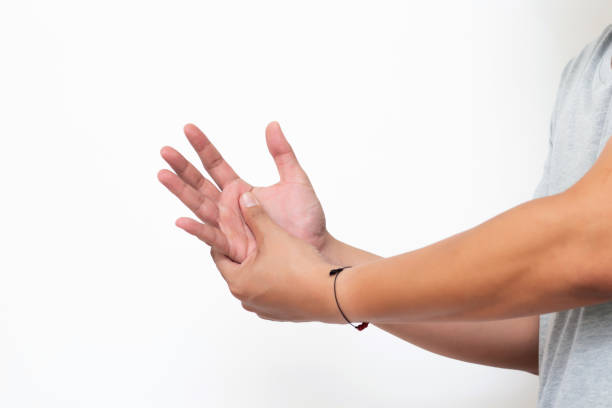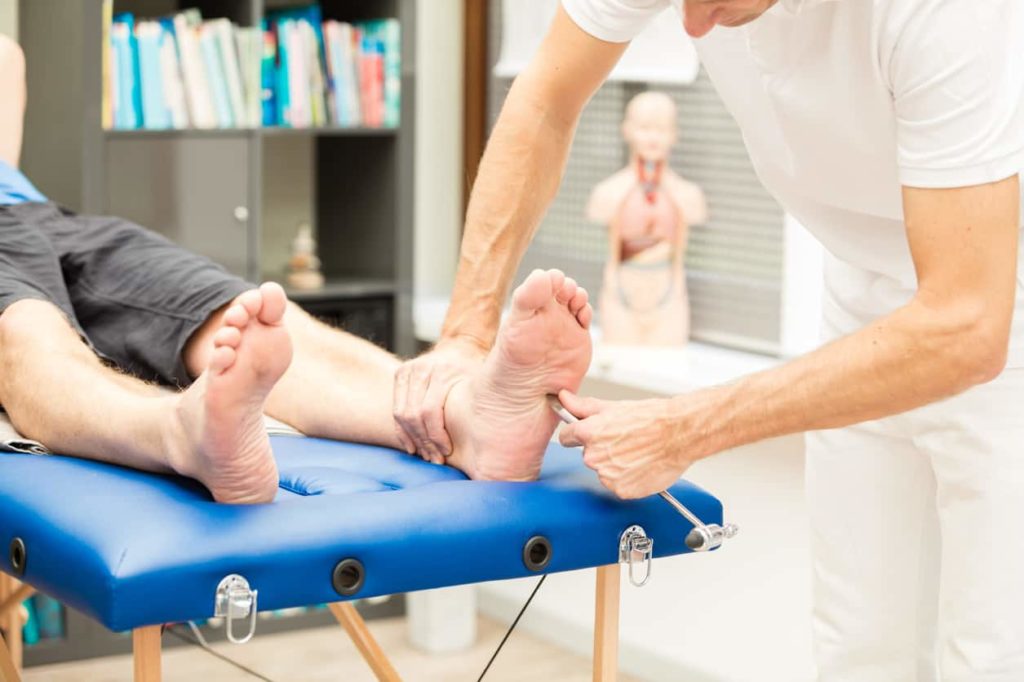Do you have diabetes? If so, you are at risk of developing neuropathy. Neuropathy is a condition that affects the nerves and can cause pain, tingling, numbness, and other symptoms. Fortunately, there are things you can do to reduce your risk of developing neuropathy. In this post, we will discuss some of the ways you can protect yourself from developing neuropathy. Keep reading to learn more!
Neuropathy is a painful sensation caused by damage to the sensory or motor nerves in your body. Neuropathic pain can be sharp and intense, making simple tasks like getting dressed or walking difficult.
Neuropathy’s intensity varies for different people – some experience mild discomfort while others suffer severe pain daily. Neuropathic pain can be debilitating and interfere with work and home life; however, there are ways to reduce neuropathic pain and protect yourself against neuropathy!
If you have diabetes, there are many ways you can protect yourself from neuropathy. Neuropathy is more common in people with diabetes, but thankfully it is often preventable. Eating a healthy diet and exercising regularly, avoiding certain medications, and taking measures to control your blood sugar all play a role in reducing your risk of developing neuropathy.
What are the symptoms of neuropathy?
Neuropathy typically starts with a tingling, numbness, and a loss of sensation. Neuropathic pain often comes on gradually and varies in intensity. Neuropathy is much more than just a prickling or stinging sensation – it can be described as burning, cold, or sharp, intense pain. Neuropathy can affect all parts of the body so you may experience different symptoms depending on where nerve damage occurs. Neuropathic pain can interfere with daily activities making it difficult to work or engage in hobbies you enjoy.
Neuropathy is a very common complication of diabetes and can lead to uncomfortable symptoms such as pain, numbness, and tingling in the hands and feet. Neuropathy may be involved in up to 60% of all cases where someone experiences foot ulcers from diabetes, which is why preventing or treating neuropathy is so important!

What are some of the causes of neuropathy?
Neuropathy can be caused by many different things. Neuropathy is a common complication of many health conditions, including diabetes and the side effects of certain medications. Neuropathy can also occur from infections or diseases that affect nerves, such as leprosy or shingles.
Neuropathy can also develop through physical injury to the nerve or spine. Neuropathy is often difficult to diagnose because many of its causes are rare and its symptoms are common in other conditions.
Most cases of neuropathy are idiopathic, which means they have an unknown cause.
Neuropathic pain is very difficult to treat effectively, so taking proactive measures to prevent neuropathy is one of your best options for reducing your risk!
What are some ways to reduce neuropathic pain?
Neuropathy may be difficult to treat once it occurs, but there are still things you can do at home that will help reduce neuropathic pain.
Neuropathy typically responds well to treatment with medication; in fact, there are dozens of different prescription options available for treating pain caused by neuropathy.
Monitoring Blood Sugar
One of the most important ways you can reduce your risk of developing neuropathy is by keeping close tabs on your blood sugar. Diabetes is a major cause of neuropathy, and controlling your blood sugar through diet and medications reduces your risk for diabetes. By making changes to your diet and staying on top of taking your medication as prescribed, you can help keep your blood sugar under control and reduce your risk of developing diabetic complications such as neuropathy.
Avoid Certain Medications
Certain medications have been linked to an increased risk of peripheral neuropathy. Neuropathic pain often results as a side effect from these medications, which include some common drugs that many people take regularly. In addition to avoiding certain prescription medications, talk to your doctor about the over-the-counter medications you may be taking. Ask whether switching to an alternative medication might be possible and how it could affect your neuropathy risk.
Neuropathy can be a debilitating complication of many health conditions, but there are things you can do to reduce your risk of developing it and treat neuropathic pain after it occurs. By eating healthy, exercising regularly, monitoring blood sugar, avoiding certain medications, and checking with your doctor about potential side effects from other medications or supplements, you can take steps to protect yourself against neuropathy!

How to live with neuropathy daily?
Neuropathy is a painful sensation caused by damage to the sensory or motor nerves in your body. Neuropathic pain can be sharp and intense, making simple tasks like getting dressed or walking difficult. Neuropathy most commonly occurs in people with diabetes, but it can also result from physical trauma, infections, certain medications, alcoholism, toxins exposure, vitamin deficiencies, and lupus. Neuropathic pain can be very difficult to manage. The treatment of neuropathy normally includes both medication and lifestyle changes such as exercise and dieting. In severe cases of neuropathy other treatments may be needed. Neuropathy treatment aims to reduce associated symptoms including chronic pain intensity and improve the patient’s daily life activities.
Advice for living with Neuropathy:
Neuropathic pain is notoriously resistant to treatment, but there are things you can do at home that will help reduce neuropathic pain. Neuropathy typically responds well to treatment with medication; in fact, there are dozens of different prescription options available for treating pain caused by neuropathy.
Regular Exercise
A regular exercise routine can be an important part of reducing your risk of developing neuropathy. Regular exercise helps increase circulation throughout the body and strengthens the muscles, providing support for your nerves and potentially protecting them from damage due to conditions such as diabetes or the side effects of medications. While there are many different forms of exercise, aerobic activities are known to have the most benefits for overall health – try taking a walk during your lunch break at work or doing some push-ups after you get home from work!
Foods to Avoid
Certain foods have been linked with increased neuropathy. Neuropathic pain often results as a side effect from these foods, which include some common items that many people eat regularly. In addition to avoiding certain foods, talk to your doctor about the supplements and prescription medications you may be taking, as they can sometimes cause neuropathic pain as a side effect. Neuropathy can be a debilitating complication of many health conditions, but there are things you can do to reduce your risk of developing it and treat neuropathic pain after it occurs.
By eating healthy, exercising regularly, monitoring blood sugar levels, avoiding certain medications or food items, and checking with your doctor about potential side effects from other medications or supplements, you can take steps to protect yourself against neuropathy! Neuropathic pain is notoriously difficult to treat, but there are things that you can do at home that will help reduce neuropathic pain. Neuropathy often responds well to treatment with medication; in fact, there are dozens of different prescription options available for treating pain caused by neuropathy.

The Outlook
While neuropathy cannot always be prevented, there are some things you can do to reduce your risk. If you have diabetes, make sure to keep your blood sugar levels under control. Make sure to follow your doctor’s instructions for taking medications and report any side effects that you experience. Maintaining a healthy weight and getting regular exercise can also help reduce your risk of developing neuropathy. Wear shoes that fit well and provide good support.
Also, protect your feet from injury by being careful when walking or exercising outdoors. And if you think you may be experiencing the symptoms of neuropathy, see a doctor right away. Early diagnosis and treatment can help minimize the pain and other complications associated with this condition.

